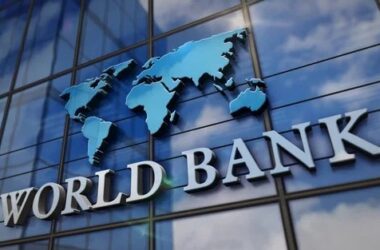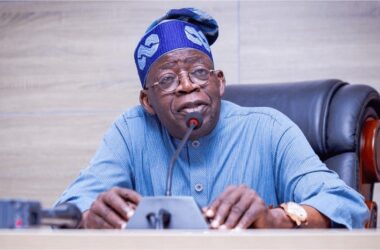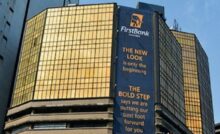In a welcome development for the Nigerian economy, the nation’s foreign exchange reserves have experienced a significant upswing, bolstered by a substantial $364 million increase. This positive movement, revealed in the latest figures released by the Central Bank of Nigeria (CBN), offers a potential respite from recent economic headwinds and injects a renewed sense of optimism into the business landscape.
For months, concerns surrounding Nigeria’s forex reserves have been a recurring theme in economic discussions. Fluctuations in global oil prices, coupled with persistent demand for foreign currency, had placed considerable pressure on the nation’s ability to meet its international obligations and fund essential imports. This recent surge, however, marks a notable turning point, suggesting a possible stabilization and even a strengthening of Nigeria’s external financial footing.
While the CBN is yet to release specific details regarding the drivers of this increase, analysts point to a confluence of potential factors. The recent firming of global oil prices, a key revenue earner for Nigeria, likely played a significant role in boosting dollar inflows. Furthermore, ongoing efforts by the government to attract foreign investment and manage import demand may also be contributing to this positive trend.
A larger reserve provides the CBN with greater capacity to intervene in the foreign exchange market, potentially moderating volatility and supporting the value of the Naira. This stability is crucial for businesses, allowing for more predictable planning and pricing.
It’s important to note that, a strong reserve position signals a greater ability for Nigeria to meet its international financial obligations, fostering trust among foreign investors and potentially attracting further capital inflows. With more readily available foreign currency, the nation can better facilitate the importation of essential goods, raw materials, and machinery, which are vital for both industrial production and consumer needs.
This is healthy for the economy because a comfortable reserve level can alleviate concerns regarding the nation’s ability to service its external debt obligations, further enhancing its creditworthiness in the international arena.
However, experts caution against premature celebration. While this increase is undoubtedly a positive step, sustaining this momentum will be crucial. Continued prudent fiscal management, diversification of the nation’s export base beyond oil, and the implementation of policies that attract long-term foreign direct investment will be essential to solidify this progress.
“This rebound in reserves is a welcome sign,” commented Dr. Adekunle Oluwafemi, a leading economist at Lagos Business School. “It provides a much-needed buffer for the economy. However, the focus must now shift towards implementing sustainable policies that ensure this upward trajectory continues.”
The coming weeks and months will be critical in observing whether this positive trend can be maintained. Businesses across Nigeria will be keenly watching for the impact of this reserve boost on the stability of the Naira and the overall economic environment. For now, the $364 million injection offers a glimmer of hope and a renewed sense of possibility for a more robust and resilient Nigerian economy.
According to an economic expert, Fagbemi Oluwafemi, “the news of a $364 million rebound in Nigeria’s foreign exchange reserves offers a much-needed sigh of relief in what has been a rather turbulent economic climate. While any positive movement in our external reserves should be acknowledged and even cautiously celebrated, it’s crucial to temper enthusiasm with a healthy dose of realism and a focus on the underlying drivers and sustainability of this growth..”
He stressed that, “this injection, while significant in the immediate context, needs to be viewed within the broader perspective of our historical reserve levels and the persistent pressures on our foreign exchange. Is this a turning of the tide, or a temporary reprieve fueled by transient factors like a marginal uptick in oil prices or perhaps short-term portfolio inflows? The answer to that question will determine the true impact on the Nigerian economy.
“One cannot ignore the positive signals this development sends. A healthier reserve position, even incrementally so, provides the Central Bank with a slightly stronger hand in managing exchange rate volatility. This can offer a degree of stability that businesses desperately need for planning and investment. Furthermore, it subtly reassures international partners and investors about Nigeria’s capacity to meet its obligations.” He noted.
However, he continued “we must delve deeper. What are the fundamental sources of this increase? If it’s primarily driven by volatile oil revenues, we remain susceptible to the cyclical nature of the global energy market. A genuine and sustainable increase in our reserves will necessitate a more diversified approach, focusing on attracting significant foreign direct investment into non-oil sectors and boosting our non-oil export capacity.”
He pointed out that, “the government’s ongoing reforms, while laudable in their intent, must translate into tangible results in terms of increased foreign currency earnings. We need to see consistent policies that foster a conducive environment for businesses to thrive, attract foreign capital, and ultimately contribute to a more robust and less oil-dependent economy.”
He pointed out that, “therefore, while I acknowledge the positive momentum indicated by this $364 million boost, I would characterize my outlook as cautiously optimistic. This is a step in the right direction, but it is merely one step on a long and potentially challenging path. We must remain vigilant, scrutinize the underlying factors driving this increase, and ensure that this positive trend is nurtured through sound economic policies and a commitment to long-term diversification and fiscal discipline.”
“Let’s not mistake a welcome breeze for a change in the prevailing wind. This rebound offers an opportunity to consolidate and build upon, but sustained effort and strategic focus remain paramount to truly fortify Nigeria’s foreign exchange position and secure a more stable economic future.” He added.
On his part, Alfred Relwane (Financial Derivatives): Views the increase as a welcome relief but emphasizes the need for realism. He believes it’s a positive step but needs to be sustained by addressing fundamental issues like diversifying export earnings and attracting foreign direct investment in non-oil sectors. He calls for vigilance and scrutiny of the drivers of this growth.
Many experts acknowledge the positive signal this rebound sends regarding the CBN’s ability to manage exchange rate volatility and improve investor confidence. However, they stress that sustainability is key and depends on consistent, prudent fiscal management and diversification of the economy.
World Bank Commends Nigeria’s macroeconomic reforms, including exchange rate unification, for stabilizing the economy and enabling the rebuilding of official reserves (now exceeding $37 billion). They see this as a significant buffer against external volatility.
JP Morgan In a recent report, highlighted the surge in Nigeria’s net foreign exchange reserves as a key pillar of the country’s economic recovery, attributing it to the CBN’s liberalization efforts that reduced arbitrage and restored liquidity. They designated Nigeria as a “top frontier market.
Fitch Ratings Revised Nigeria’s long-term foreign-currency issuer default rating to stable, applauding the government’s commitment to orthodox economic policies, including exchange rate liberalization, which supports the rebuilding of reserves.
Experts widely agree that while the immediate boost is positive, the sustainability of this growth is crucial. They emphasize that relying solely on oil revenue is risky and that Nigeria needs to focus on increasing non-oil exports and attracting long-term foreign direct investment.
Need for Fiscal Discipline: Prudent fiscal management is repeatedly mentioned as essential to maintain a healthy reserve position and overall economic stability.
Impact on the Economy:
A stronger reserve is expected to provide the CBN with more capacity to stabilize the Naira, which is crucial for businesses and reducing inflation. The Naira has indeed shown some appreciation in both official and parallel markets recently.
Increased reserves typically boost investor confidence, signaling a greater ability to meet international obligations. Higher reserves allow for easier financing of essential imports. A comfortable reserve level can reduce concerns about debt servicing.
The World Bank, while positive about reforms, also points out the need for inclusive growth, particularly through expanding cash transfer programs for vulnerable populations. It’s important to view the current increase within the context of Nigeria’s historical reserve levels and ongoing economic challenges.
In conclusion, the $364 million boost in Nigeria’s forex reserves is largely seen as a positive development and a potential sign that recent reforms are beginning to yield results. However, experts emphasize that the sustainability of this growth hinges on continued sound economic policies, diversification of the economy, and prudent fiscal management. While it offers a “breath of fresh air,” sustained effort is needed to ensure long-term economic stability and resilience.









